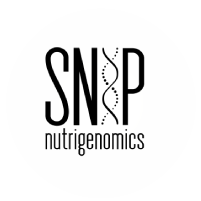Your methylation cycle is one of the most important biochemical processes in your body, yet most people have never heard of it. Think of it as the body’s master control switch, silently working behind the scenes in every cell. When methylation is functioning well, it supports hundreds of vital functions, including detoxification, energy production, neurotransmitter balance, immune health, and even how your DNA expresses itself through epigenetics.
Why does this matter? Because when your methylation cycle is sluggish or unbalanced, the effects ripple through multiple systems. You might feel it as low energy, mood swings, poor stress tolerance, hormonal changes, or even difficulty recovering from illness. Over time, impaired methylation can influence cardiovascular health, brain function, and inflammation.
The good news? Methylation is highly responsive to lifestyle, nutrition, and personalized support. Even if you have genetic variants that impact this pathway, you can often optimize it by providing the right nutrients and reducing environmental stressors.
Curious about where you stand? Take this quick self-scoring quiz to get a sense of how well you might be methylating. It’s not a diagnostic tool, but it will help you spot signs that your methylation cycle may need extra care.
What is Methylation and Why Does It Matter?
Methylation is a chemical process that happens billions of times per second in your body. It involves the transfer of a methyl group (one carbon and three hydrogen atoms) to molecules like DNA, neurotransmitters, and toxins. These reactions control gene expression, influence mood, detoxify harmful compounds, and produce critical compounds like SAMe, creatine, and glutathione.
When methylation works well, you have better energy, resilience to stress, and balanced hormones. When it struggles, you may experience symptoms like fatigue, brain fog, anxiety, and inflammation.
The Genetics Connection: Why Some People Struggle More
Your genes provide the blueprint for how efficiently you methylate. Variants in genes such as MTHFR, MTR, MTRR, AHCY, and COMT can slow down key steps in the methylation cycle. For example, an MTHFR variant may reduce your ability to convert folic acid into active folate, which your body needs to make methyl donors like SAMe.
But here’s the empowering part: genes are not your destiny. With the right nutrients (like Quatrafolic ®, B12, B6, riboflavin, and choline), stress management, and lifestyle choices, you can support optimal methylation—even if you have genetic variants.
Curious How Well You’re Methylating?
Take this quick self-scoring quiz to learn more. Afterward, explore options for genetic testing and personalized nutrition so you can take the guesswork out of supporting your health.
The Methylation Quiz
Instructions:
Answer each question honestly.
-
Never = 0 points
-
Sometimes = 1 point
-
Often = 2 points
Questions:
-
Do you struggle with low energy or fatigue even after good sleep?
-
Do you experience mood swings, irritability, or anxiety that seem out of proportion to stress?
-
Do you have frequent headaches or migraines?
-
Do you notice poor stress tolerance or feel easily overwhelmed?
-
Do you have trouble concentrating, staying focused, or experience brain fog?
-
Have you been diagnosed with elevated homocysteine or have a family history of heart disease?
-
Do you have a history of fertility challenges or hormonal imbalance (PMS, PCOS, irregular cycles)?
-
Do you experience seasonal allergies, asthma, or chemical sensitivities?
-
Do you struggle with poor sleep or insomnia?
-
Do you have a history of depression or anxiety that does not fully respond to medication or therapy?
Scoring
Add up your points.
-
0–4 points: Your methylation is likely functioning well. Keep supporting it with a balanced diet, regular exercise, and stress management.
-
5–9 points: Your methylation may need extra support. Focus on nutrients like folate (Quatrefolic®), B12 (methylcobalamin), B6, riboflavin, magnesium, and choline.
-
10–14 points: Signs point to methylation stress. Consider getting genetic and lab testing to personalize your support.
-
15–20 points: Your methylation might be significantly compromised. This is a good time to talk to a practitioner who understands methylation and genetics.
Next Steps: Want a Clear Roadmap for Better Methylation?
If your score suggests methylation stress, don’t guess—test. A DNA test from SNiP Nutrigenomics reveals how your genes influence methylation, detoxification, and other pathways. We then match you with a custom nutritional formula CODE Complex™ designed to support your unique genetic blueprint.
Ready to take control of your health?
Learn more about SNiP Nutrigenomics here.


